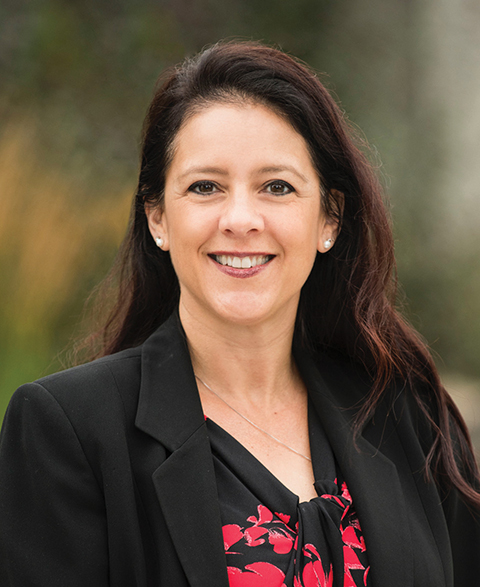
Home » Port of Benton chooses new director after rocky transition
Port of Benton chooses new director after rocky transition

December 13, 2019
Diahann Howard has been named the Port of Benton’s
permanent executive director.
Howard, a longtime port employee, had been serving as
interim executive director since May, when Scott Keller retired after more than
30 years with the port.

Howard, one of four finalists for the top job, officially
accepted the job offer from the port’s elected commissioners at their Dec. 11
meeting.
Contract details, including salary, job description and
termination procedures, were finalized in a closed-door session.
The contract will be signed at a Dec. 17 special meeting.
Howard will be paid $155,000 annually.
Howard said she looks forward to serving the port, which promotes economic development in western Benton County, including Richland, Prosser and Benton City.
Top priorities
Her top priorities include staff training, catching up on
pavement maintenance, roof work and executing the port’s strategic plan.
She also is working to fill two key positions — airports
director and facilities director, both vacated in the tumultuous months after
Keller left.
As executive director, Howard will manage day-to-day
operations of the public port district, which has an annual budget of about $10
million. The port is supported by rent payments from tenants, property taxes
and government grants.
It owns and operates numerous business parks, as well as
the Richland and Prosser municipal airports and Crow Butte Park near Paterson.
Howard earned a degree in international affairs from
Eastern Washington University and held posts with the city of Richland and the
Tri-Cities Enterprise Association before joining the port in 2006.
She served as director of development and governmental
affairs prior to Keller’s unexpected retirement.
Her appointment to the role caps a rocky transition
after Keller left following an argument with Commissioner Roy Keck over
who should succeed him.
The argument was recounted in an investigation into
misconduct allegations filed by some port employees in October.
Howard wants to look forward
Howard called the conflict “unfortunate,” and said she’s
eager to put the episode in the past. The coming year is full of opportunities
to expand the port’s mission to promote development and job creation and to
serve the communities and taxpayers in its service area, she said.
The port hired Yakima attorney Sarah Wixson to review
complaints that the port commission violated the Washington Open Public
Meetings Act when they traveled together and that Howard and Keck mistreated
employees and violated port policies.
The report was released Nov. 15, 10 days after Keck won a
narrow victory over challenger Bill O’Neil in the Nov. 5 general election.
The investigation traced the conflict within the port to
May, when Keck and Keller argued over a succession plan. Keck favored Howard as
a successor, while Keller backed another employee, whose name is blacked out in
the 16-page version of the report released to the public.
Keller’s departure did little to calm tensions.
As interim executive director, Howard moved quickly to
implement changes she said were required by the job description she had been
given.
Over the course of three months, the port lost five
employees.
In early August, some complained to Commissioner Jane Hagarty
that Howard was exceeding the authority of a temporary leader.
Hagarty interviewed most of the port’s staff.
Howard followed up with her own interviews.
On Sept. 9, Howard led an all-staff meeting where she told
employees it was time to stop grieving the departure of a well-liked
boss.
After the meeting, staff received a PowerPoint titled
“What’s Trust Got To Do With It,” which was compiled by Janice Corbin of Sound
Employment Solutions LLC, a port consultant. Staff found some of the statements
in the presentation jarring.
“If an individual isn’t able to re-engage in the
professional relationship and establish basic trust, the employer may consider
performance improvement and/or discipline,” it said.
An unidentified group of employees formally complained in
a letter dated Oct. 17.
Investigation findings
The investigation concluded commissioners did not violate
the meetings act when they traveled together. Washington law requires elected
bodies to meet in public whenever a majority of members get together.
For the port, that means any time two of the three commissioners are together, it could constitute a meeting. The investigation noted passively receiving information while traveling did not constitute a meeting.
Other complaints had
merit, it said. The investigation found:
• Howard hired a human
resources consultant without a contract. A contract was later completed.
• Keck disclosed
statements made in a closed-door session to staff who were not present for the
private session.
• Howard’s actions
around the Sept. 9 staff meeting were designed to stifle further complaints and
constituted retaliation.
• Keck retaliated
against staff in connection with his re-election campaign against challenger
O’Neil, who was backed by the former executive director. Keck accused staff of
hacking his phone and of openly backing his rival at the port’s Wings and
Wheels event held in August at the Richland Airport. According to the
investigation, Keck said employees loyal to Keller had benefited from a “good
old boys” atmosphere and were undermining Howard as the port moved to a more
“merit-based” one.
• The search for a new
executive director was tainted by perceptions of political allegiances.
Local News
KEYWORDS december 2019





